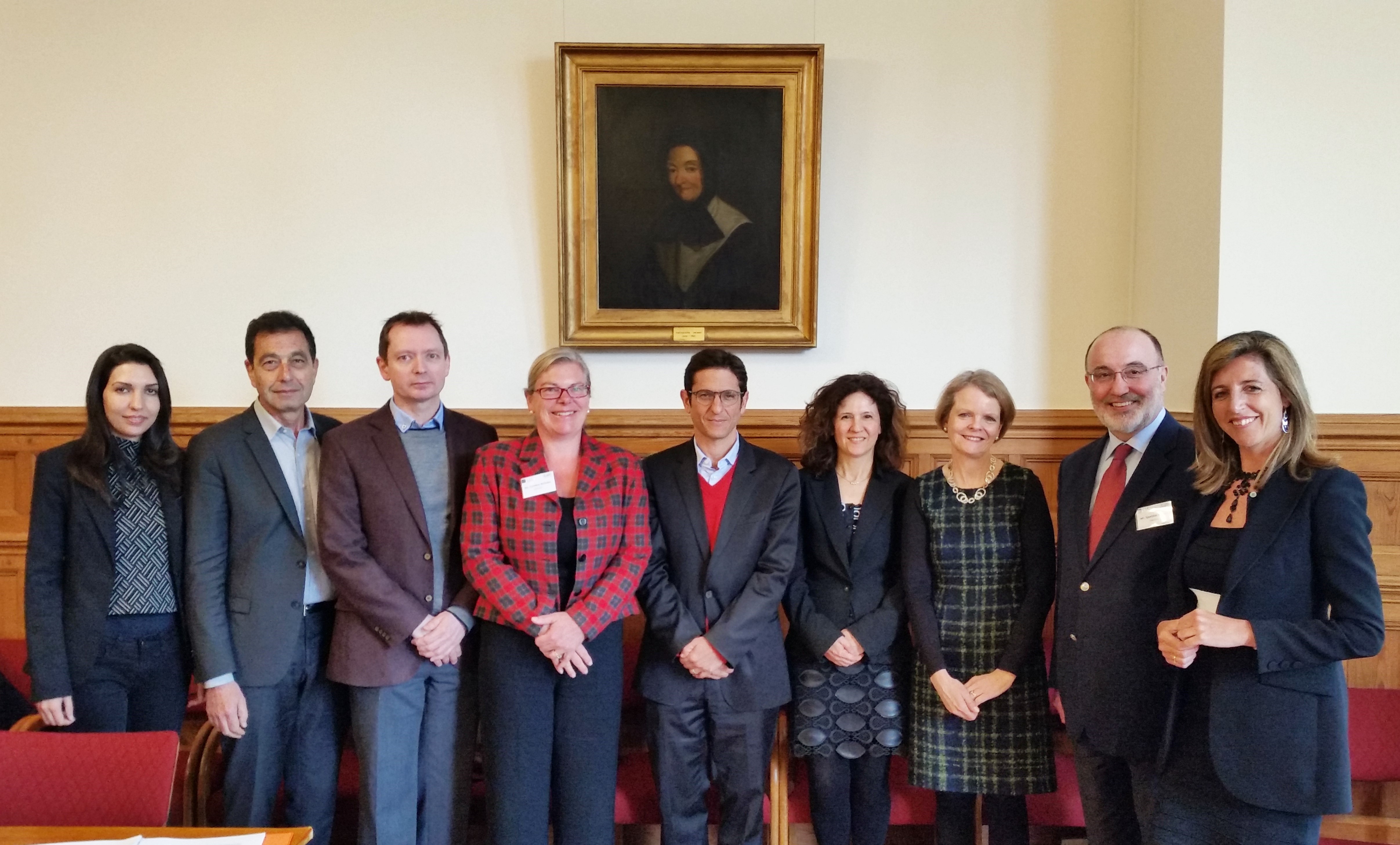Workshop on the Economic Assessment of International Commercial Law Reform
Associated people
An academic workshop on the Economic Assessment of International Commercial Law Reform was held at the University of Oxford on 29 and 30 March 2016. The workshop took place as part of the Economic Assessment project, which is a joint undertaking between the Commercial Law Centre and the UNIDROIT Foundation.
This invitational workshop brought together leading experts from academia, intergovernmental organisations and industry to discuss the role, nature, and issues of assessing and measuring the economic benefits (whether micro, macro, or developmental) of international commercial law reform. The workshop provided an opportunity to further the discussion of the need for international principles, standards, or parameters for assessing economic benefits in the context of international commercial law reform.
There was much discussion on developing a comprehensive formula that would serve as a framework for economic analysis (EA) quantification. The workshop developed a draft of such a formula. At the same time, it was agreed that some economically beneficial aspects of international commercial law reform do not lend themselves to formal quantification.
The timing of EA was addressed. The workshop discussed the need for both ex ante and ex post EA. Ex ante EA should help guide regulatory processes, although due to difficulties in obtaining data at this stage numerous assumptions must be made regarding variables, particularly during negotiation periods. Ex post EA should examine whether regulatory goals have been met after implementation. The workshop agreed that there should also be disclosure regarding the accuracy of initial assessments, and an outline of best practices in comparing actual with predicted results.
It was widely agreed that advanced modelling techniques should play a larger role in the regulatory process, although further discussion is required regarding what can reasonably be monetised or quantified. There was dialogue regarding what exactly should be quantified, and that this will likely be dependent on the subject matter of regulation as well as the type of instrument, for example whether it is hard law or soft law. When discussing facilitative regulation it was thought that one possible way to test such agreements is to look at how many countries adopt a model law. Ultimately, it was acknowledged that the type of regulation and timing of the EA present challenges to the collection and analysis of accurate data, particularly ex ante.
There was general agreement among the workshop participants that (i) there is a large gap between theory and practice in this area, as rigorous EA processes are not consistently used in regulatory decision making, and (ii) there should be more focus on this topic generally, and that more ex ante assessment is needed.
High level issues for further discussion and agreement include the following: (i) the appropriate role of the EA in the decision making process (for example, as a permanent part of the EA process) and how EA and non-economic factors interact and relate; (ii) whether a global EA process is possible and desirable, or whether a country specific EA process is preferred; (iii) the determination of which type of agency is best placed to conduct the EA and collect data; and (iv) the scope of the EA and its role in addressing alternative courses of action.
The immediate next steps will be to engage in further work on the comprehensive EA formula (and what is included and excluded from it) and the development of an outline on EA best practices, in each case in line with the workshop discussions and outcomes.



